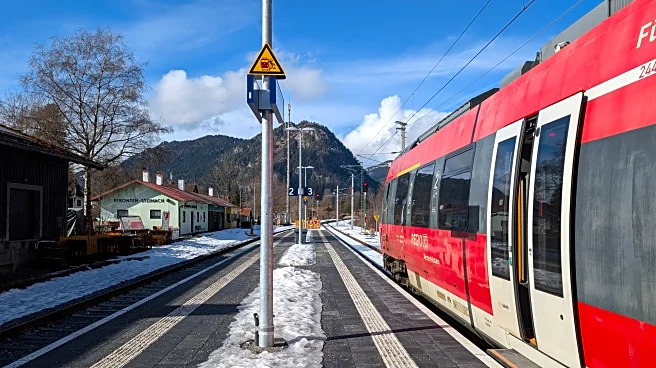What's Happening?
Nestlé and Kraft Heinz are taking significant steps to secure their supply chains in response to climate change impacts. Nestlé is focusing on cocoa production, which has been affected by erratic weather patterns and droughts in West Africa. The company is implementing agroforestry systems to improve drought resistance and diversify income sources for farmers. Additionally, Nestlé is empowering women and households through incentive models that focus on education and income diversification. Kraft Heinz is enhancing its tomato sourcing by integrating climate-smart practices, such as cover cropping and sustainable farming techniques, to improve soil health and yield optimization. The company is also leveraging AI and automation for efficient irrigation and harvesting, while developing seeds better suited to changing climate conditions.
Why It's Important?
These initiatives by Nestlé and Kraft Heinz are crucial as they address the growing challenges posed by climate change on agricultural production. By adopting sustainable practices, these companies are not only securing their supply chains but also contributing to environmental resilience. This approach helps mitigate risks associated with climate change, ensuring consistent product quality and availability. Moreover, empowering local communities and diversifying income sources can lead to improved living standards and economic stability in affected regions. As major players in the food industry, their actions set a precedent for others to follow, potentially leading to widespread adoption of sustainable practices across the sector.
What's Next?
Nestlé and Kraft Heinz are expected to continue refining their strategies to further enhance sustainability and resilience in their supply chains. Nestlé's upcoming Climate Smart Food broadcasts will provide insights into their ongoing efforts and future plans. Kraft Heinz will likely expand its partnerships and continue integrating advanced technologies to optimize agricultural practices. These companies may also face increased scrutiny from regulators and stakeholders, prompting further innovation and adaptation in their sustainability strategies.










